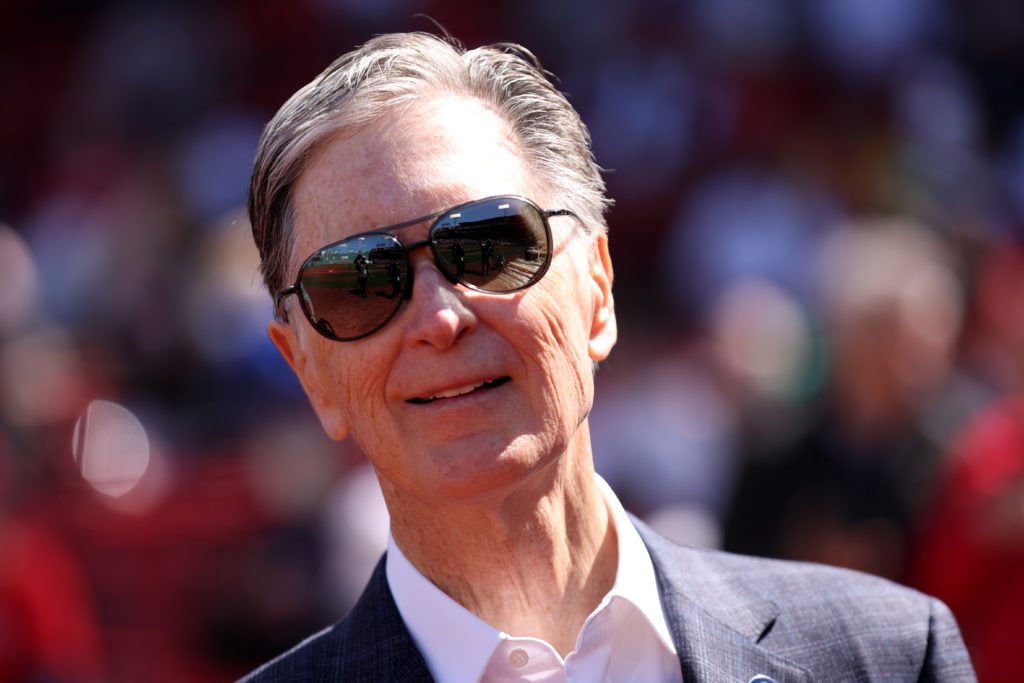Liverpool owners FSG have 'no interest in football' amid £3bn talks with Saudi Arabia - Kieran Maguire

09/13/2024 12:00 PM
Fenway Sports Group’s long-term business plan is to flip Liverpool for a profit on the £300m they paid for the club back in 2010.
Such has been the explosion in the value of the Premier League‘s TV rights and Liverpool’s maturing commercial strategy, they could expect a 10-15x return on that figure if they sold the club tomorrow.
John Henry, FSG’s biggest individual shareholder with around a 40 per cent stake, still believes there is untapped value in football and that Liverpool‘s price can go even higher.
FSG sold an unspecified stake in the club to American private equity firm Dynasty Equity last year for approximately £150m.
These kinds of trades and portfolio restructurings are meat and drink for FSG, whose sports empire encompasses several teams and stakes in sports institutions valued at more than £12bn.
To explore Liverpool’s financial landscape and FSG’s plans in sports investment, TBR Football spoke exclusively to Liverpool University football finance lecturer and Price of Football author Kieran Maguire.
FSG’s negotiations with Newcastle United owners PIF
As well as Liverpool, the Boston Red Six, the Pittsburgh Penguins, a stake in NASCAR and a property portfolio, FSG also recently invested in the PGA Tour.
It is a turbulent time for the golf series due to the challenge to its supremacy orchestrated by Saudi Arabia-backed LIV Golf.
The Saudi Public Investment Fund (PIF), the owners of Newcastle United, have spent billions on their rivals series but are now in negotiations with the PGA Tour about a potential £3bn merger.
How might this affect FSG and, by extension, the way they run Liverpool?
“In terms of these talks, this is a marriage of inconvenience,” said Maguire.
“LIV Golf is watched by next to nobody. It has meaningless competitions and has fractured the sport of golf, all while making individual elite golfers even more wealthy than they were previously.
“Getting involved with this for FSG is purely down to the bottom line.
“They see this as they see all their sports investments. It is a means of generating income and profit.
“Give the repairs that have to be made in the sport of golf, there are opportunities in bridging the reconciliation.
“This would not impact PIF as their focus is very much on building Newcastle as a brand.
“If their investment is going to continue at present levels, it would be difficult for them to have a formal relationship with Liverpool given the constraints of owning more than one club in a single country – unless, of course, that country is Saudi Arabia.”
Everton bidder John Textor namechecks Liverpool in FFP rant
On the other side of Stanley Park, Liverpool’s rivals Everton are involved in a protracted takeover sage with multi-club billionaire and Crystal Palace co-owner John Textor.
Recently, Textor cited Liverpool in a critique of FFP (now Profit and Sustainability Rules, or PSR) as one of the clubs that benefit from the system.
Although he believes Textor’s bombastic approach to calling out FFP might not be the most palatable, Maguire is inclined to agree with the premise of his comments.
“Whilst populist, John Textor’s snarky comments with regards to FFP do have a ring of truth.
“Financial fair play rules have nothing to do with fairness. And Profit and Sustainability Rules have nothing to do with profit or sustainability.
“We have seen this with some of the transactions made by clubs with the sole aim of circumventing the rules and therefore making a mockery of this idea.
“I don’t think his comments will cause friction within the Premier League given that there is already dissent among clubs like Newcastle and Aston Villa.
“I suspect Textor wants to put Everton in that bracket if he does succeed with the takeover.
“Liverpool are more likely to have greater cost control because FSG have no interest in football but a lot of interest in making money. Having stricter spending rules is one way of achieving that.”
John Henry and the salary cap model
FSG are known for their relatively cautious approach to recruitment and retention, and their net spend over the last decade is far lower than most of their peer group.
John Henry has previously advocated for stricter spending controls within football and potentially even a salary cap that would limit how much players can earn.
As Liverpool’s wage budget was £373m at the last count and FSG’s main concern is a return on investment as opposed to success on the pitch, it’s easy to see why this is their stance, claims Maguire.
“John Henry is used to operating in an American franchise model where the ultimate objective is to make money.
When all of the ducks are lined up in a row, you can understand why cost control works so well in American sports.
“The added advantage is that there is no leakage into other markets. You either play in the NFL, or you don’t play. There is no market in Europe, for example. These are American sports.
“The same is not true in the Premier League. So if there is a cost control system introduced that sees Liverpool pay lower wages than some clubs on the continent, expect a leakage of players to other leagues.
“However, the Premier League has such huge advantage over other leagues in terms of its broadcast and commercial deals that I think this is a long way off happening.
“John Henry will be frustrated that Liverpool’s popularity is probably greater than ever but the club is not reflecting that in terms of profitability.
“But he is a very smart man. I’m sure he sees cost control as a way of switching the dynamics of negotiations away from players and giving owners a further advantage.”
